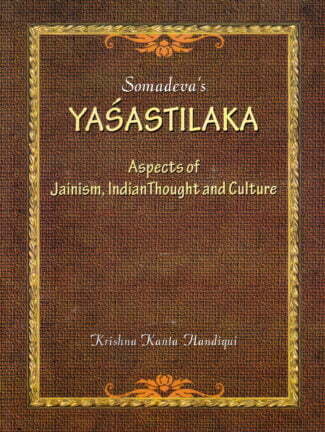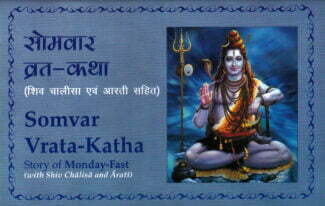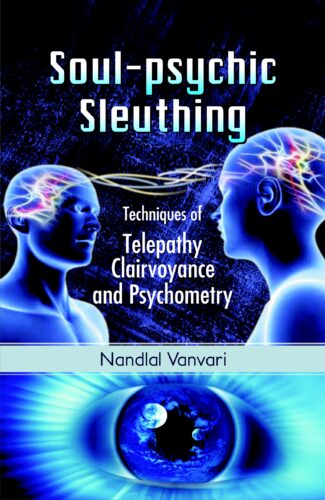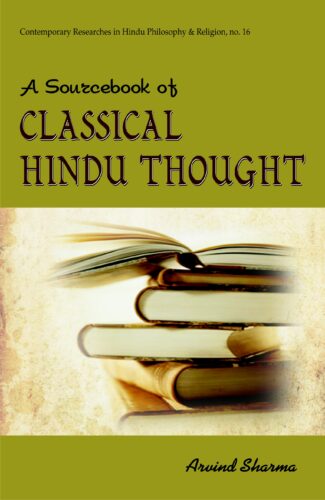Showing 911–920 of 1165 results
The Bodos (Kacharis) constitute a very important group of Indo-Mongoloid (Tibeto-Burman) people of north-east India. They are concentrated in various parts of Assam, and are considered to be one of the earliest settlers of Assam, who had built powerful kingdoms in various parts of north-east India. This book attempts to trace the history of these tribal people, their glory during the medieval period, their fall during the Mughal rule and their efforts to awaken during the British Raj. The Bodos were illiterate, slothy due to their fondness for drinking jou (rice beer), reared pigs, lived in unhealthy surroundings, which led them to be labelled as untouchables by the upper caste Hindus. Persistent and path breaking efforts made by their renowned educational, cultural and social reformer Gurudevkallicharan Brahma bore fruit and many changes were brought in the Bodo way of living, customs, religion, habits. Notable among them were his efforts to motivate his people to discard their old religion and convert to a new religion called Brahma dharma. He was instrumental in spreading literacy by convincing the colonial authorities to open schools, and in starting a magazine called Bibar. Moreover, his pioneering role in launching various unions among the Bodos is laudable. This book is a veritable ‘must read’ for all those who wish to know about the Bodos and the socio-religious-cultural transformation that took place in them and a new dawn that they had entered into.

This book is notable as an encyclopaedic record of literary, socio-political, religious and philosophical data that throws light on the cultural history of the Deccan in early medieval India. It discusses Somadeva, his age and gives a synopsis of Yashastilaka, throws light on Jaina dogmatics, religious poetry, moral and religious stories and myths and legends.
Yashastilaka by Somadeva, composed in ce 959, is a Jaina religious romance written in Sanskrit prose and verse. It is notable as an encyclopaedic record of literary, socio-political, religious and philosophical data that throws light on the cultural history of the Deccan in early medieval India. This volume presents a critical study of the work, providing a comprehensive picture of the life and thought of the time of Somadeva. It begins with a discussion on Somadeva and his age and gives a synopsis of Yashastilaka. it examines the Yashastilaka as a prose and a religious romance, a socio-political record and as an anthology of Sanskrit verse. The book discusses various philosophical doctrines in Indian thought. With many detailed references and footnotes, it reveals the Yashastilaka as a work that expounds the cardinal teachings of Jainism. It throws light on Jaina dogmatics, religious poetry, moral and religious stories, and myths and legends in the process of examining the work. The volume also has supplementary notes incorporating the results of studies on Somadevas relations with the Vemulavada Calukyas and the locality in which he wrote his masterpiece.

The book makes it explicit on how certain important philosophical questions generated from logic are, in the ultimate analysis, rooted in the area of philosophy of language. It also suggests certain means of settling these issues of philosophy of logic.
Philosophy of logic and philosophy of language are closely interrelated areas of research. Many of the philosophical questions arising from logic cannot be fully addressed without taking into consideration certain issues associated with the concerned language. The philosophical issues, e.g. concerning validity of an argument, proof for the validity of an argument are philosophical problems, which are generated from the study of logic.
The book makes it explicit on how certain important philosophical questions generated from logic are, in the ultimate analysis, rooted in the area of philosophy of language. It also suggests certain means of settling these issues of philosophy of logic. In addition to certain issues in philosophy of logic the book extensively deals with certain issues in philosophy of language such as the issue concerning holism, semantic inferentialism, realism, objectivity of statements and representationalism.
Those who are engaged in advanced research in philosophy of language and philosophy of logic will benefit immensely from reading this book. It will also be of great use to the students of philosophy and to the general readers as well.

This book elaborates the glory of the story of ßSri Somavarû and meticulously details the nuances of Monday fasting in English and Hindi. Shiv Chalisa and Sri Shiv-Panchaksharastotram are also given.
This book elaborates the glory of the story of ßSri Somavarû and meticulously details the nuances of Monday fasting in English and Hindi. Shiv Chalisa and Sri Shiv-Panchaksharastotram are also given.

This volume encapsulates the advice of Krishna to Arjuna at the Mahabharata battlefield, through the poetic narration of Vedic seer Vasistha in Yoga-Vasistha, which is different from the traditional one found in Mahabharata. It melds together the wisdom of two great epics Bhagavad-Gita and Yoga-Vasistha providing unparalleled access to the great truths and insights of yoga and liberation.
Arjunas predicament of fighting and killing his own kinsmen and gurus in the Mahabharata War, and Lord Krishnas advice and thus the formers enlightenment are well known. Moving away from the traditional Mahabharata narration, Yoga-Vasishtha presents a different narrative approach by the Vedic seer, Vasishtha about the KrishnaArjuna dialogue to his pupil Rama as if it would happen eventually in the remote future.
While the Bhagavad-Gita accounts for Krishnas teaching of eighteen forms of yoga in 700 verses, Vasishtha narrates sixty stories in more than 28,000 verses, making Yoga-Vasishtha as one of the lengthier and most lyrical philosophical discourses in the world. In the course of the narrative, Vasishtha summarizes how to attain liberation, the essence of the Bhagavad-Gita, in seven chapters.
This lucid translation of Mokshopaya, a section of the Yoga-Vasishtha, encapsulates the message of Krishna, through the poetic narration of Vasishtha. Arjuna experiences the dissolution of his ignorance, overcomes his attachments and arrives at a point of freedom. The author, by choosing to highlight the story of Arjuna from two sources, has melded together the wisdom of two great epics Bhagavad-Gita and Yoga-Vasishtha providing the reader with unparalleled access to the great truths and insights of yoga and liberation.

This volume encapsulates the advice of Krishna to Arjuna at the Mahabharata battlefield, through the poetic narration of Vedic seer Vasistha in Yoga-Vasistha, which is different from the traditional one found in Mahabharata. It melds together the wisdom of two great epics Bhagavad-Gita and Yoga-Vasistha providing unparalleled access to the great truths and insights of yoga and liberation.
Arjunas predicament of fighting and killing his own kinsmen and gurus in the Mahabharata War, and Lord Krishnas advice and thus the formers enlightenment are well known. Moving away from the traditional Mahabharata narration, Yoga-Vasishtha presents a different narrative approach by the Vedic seer, Vasishtha about the KrishnaArjuna dialogue to his pupil Rama as if it would happen eventually in the remote future.
While the Bhagavad-Gita accounts for Krishnas teaching of eighteen forms of yoga in 700 verses, Vasishtha narrates sixty stories in more than 28,000 verses, making Yoga-Vasishtha as one of the lengthier and most lyrical philosophical discourses in the world. In the course of the narrative, Vasishtha summarizes how to attain liberation, the essence of the Bhagavad-Gita, in seven chapters.
This lucid translation of Mokshopaya, a section of the Yoga-Vasishtha, encapsulates the message of Krishna, through the poetic narration of Vasishtha. Arjuna experiences the dissolution of his ignorance, overcomes his attachments and arrives at a point of freedom. The author, by choosing to highlight the story of Arjuna from two sources, has melded together the wisdom of two great epics Bhagavad-Gita and Yoga-Vasishtha providing the reader with unparalleled access to the great truths and insights of yoga and liberation.

This book deals extensively with the sleuthing techniques of telepathy, clairvoyance and psychometry. When soul-psychic sluething is applied extensively, it will minimize troubles and traumas, corruption, and terrorism in the civilized societies. It incorporates the views of Taoist and Confucius, and of the modern psychologists giving a new dimension to soul-psychic sluething.
Soul-psychic Sleuthing will help us bring peace, harmony and welfare of society we live in. When it will be applied extensively, it will minimize troubles and traumas, corruption, and terrorism in the so-called civilized societies.
The Hindu scriptures talked of atma-manthan (soul-churning) because it is only atma, i.e. soul which being one with the Universal Consciousness, knows the truth, which in turn can reach the best solution. Truth shall win. This enforces the application of the Soul-psychic Sleuthing.
There are many techniques of the soul-psychic sleuthing. However, this book concentrates only on three of these telepathy, clairvoyance, and psychometry. Based on Taoist and Confucius wisdom texts, and the views of the modern psychologists, this study provides in detail the methods to develop these talents. Presenting the sleuthing practised by seers and mystics, psychic readers and trackers, telepathists, consultants in their areas and others, it delves into each of the three techniques in-depth.
The soul-psychic sleuthing needs reason, courage, majesty, morals, ethics, values and a tranquil mind besides the absolute purity of thought and intention.

This book deals extensively with the sleuthing techniques of telepathy, clairvoyance and psychometry. When soul-psychic sluething is applied extensively, it will minimize troubles and traumas, corruption, and terrorism in the civilized societies. It incorporates the views of Taoist and Confucius, and of the modern psychologists giving a new dimension to soul-psychic sluething.
Soul-psychic Sleuthing will help us bring peace, harmony and welfare of society we live in. When it will be applied extensively, it will minimize troubles and traumas, corruption, and terrorism in the so-called civilized societies.
The Hindu scriptures talked of atma-manthan (soul-churning) because it is only atma, i.e. soul which being one with the Universal Consciousness, knows the truth, which in turn can reach the best solution. Truth shall win. This enforces the application of the Soul-psychic Sleuthing.
There are many techniques of the soul-psychic sleuthing. However, this book concentrates only on three of these telepathy, clairvoyance, and psychometry. Based on Taoist and Confucius wisdom texts, and the views of the modern psychologists, this study provides in detail the methods to develop these talents. Presenting the sleuthing practised by seers and mystics, psychic readers and trackers, telepathists, consultants in their areas and others, it delves into each of the three techniques in-depth.
The soul-psychic sleuthing needs reason, courage, majesty, morals, ethics, values and a tranquil mind besides the absolute purity of thought and intention.

The book aims at familiarizing the readers with classical Hindu thought as enshrined in its foundational scriptures, the Vedas, for the information they provide on basic Hindu concepts relevant to the interests of students and scholars.
This volume presents material drawn from the classical Hindu texts, as well as other sources, to familiarize readers with the outlines of classical Hindu thought. It provides a bunch of readings organized around certain set concepts, quarried from Hindu religious texts of the past. It discusses material from classical Hindu texts relating to the themes of the divine realm such a brahman, devi, ishvara, trimurti, and so on, as well as of the mundane realm, such as jiva, samsara, karma, dharma, and so on. It also covers the concepts which link the two realms, such as those of maya, and the overcoming of it through yoga, to attain moksha. Some selections also throw light on what classical Hinduism has to say about the human being as a social being, through such concepts as varna, ashrama, and the purusharthas.
The volume would be of interest to all students and scholars of Hinduism, and particularly those interested in exploring Hindu philosophy and theology.

The volume examines the triangular relationship and conflicts among the Indian princes, the politicians and the British over the channels of communication, interference in administration, succession to throne and the collection of import duties. The book also explores the honours system of titles and salutes, which played a central role in princely India.
In Sovereignty, Power, Control, John McLeod uses the princely states of the Western India States Agency (now in Gujarat) as a case-study to examine the triangular relationship among the Indian princes, the politicians of the states’ people’s movements, and the British. He argues that the princes were motivated by the desire to safeguard their sovereignty; the politicians by a quest for a share in power in the states; and the British by a policy of maintaining control. McLeod first analyses the conflict among the parties over the channels of communication between the princes and the British, the collection of duty on imports at state ports, and the existence of numerous small states in Gujarat. He then turns to British interference in the princes’ affairs over the issues of minority administration, maladministration, and succession to princely thrones. Finally, he explores the honours system of titles and salutes, which played a central role in princely India.
| There are no products |